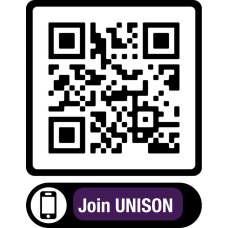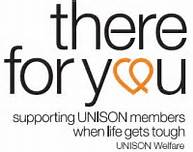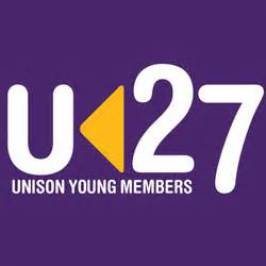We operate the UNISON Trained and Active programme for developing our reps.
Adobe Acrobat document [820.9 KB]
Want to get involved?
Branch roles
As a UNISON member you're always part of your local UNISON branch. It's your main source of advice and support and the most important link between the union and members like yourself.
Workplace contacts
This is an ideal role for someone who is interested in becoming a steward or safety rep and wants to find out more about what's involved.
Stewards
A UNISON steward is an elected rep who helps organise, recruit and represent members in their workplace.
Health and Safety reps
A UNISON health and safety rep helps to make sure that people's jobs and their workplaces do not cause injury or ill-health.
Voting
UNISON members elect their representatives at all levels of the union. It's essential that young members vote in these elections to make sure their voice is heard. Young members also have a seat on
the NEC from 2005.
Want to meet new people, learn new skills and go places?
Be active in UNISON and you'll get a lot more out of your union. Getting involved means:
- Helping make a difference
- Getting together with work friends and colleagues and meeting new people
- Doing things you usually couldn't or wouldn't do alone
- New opportunities for education, training and personal development
- Helping yourself and improving your life at work, home and the wider world
- Having fun and doing something you enjoy
Different ways to get involved
Different people participate in different ways. Try getting involved in:
- A local, national or international campaign - go to
 Campaigns
Campaigns - The work of the UNISON job group connected with your employment - go to
 At Work
At Work
Having an equal say
Different groups of members meet together under the UNISON umbrella. These groups:
- Ensure the union reflects particular experiences
- Enable members with common interests to come together on an equal basis to work on key issues affecting them.
-
Go to: Young members | Retired members | Lesbian and Gay | Disabled members | Women |Black members
Learning And Organising Services
About LAOS
UNISON Learning and Organising Services (LAOS) co-ordinates trade union education and lifelong learning opportunities for members. This includes training and development for union reps as well as personal and career development courses ranging from Skills for Life through to professional qualifications. We also offer learning discounts and a small educational grants scheme.
LAOS works with regional education officers, learning development organisers and groups across the union, to:
- deliver a national activist training programme that complements regional and branch provision. It includes employment law courses and training for national committees, national service groups and self-organised groups. LAOS also develops bespoke training programmes aimed at achieving UNISON's key objectives on issues such as equal pay, pensions and the NHS campaign, and other course materials for national, regional and branch based courses
- co-ordinate UNISON's tutor training scheme to help members and activists interested in running courses or using education methods to encourage greater involvement in branch initiatives
- develop online training for activists and online communities
- campaign for lifelong learning - UNISON's twin-track offer: UNISON membership development began with what is now known as the internal programme, offering member-only courses such as Return to Learn. In recent years UNISON has extended this by securing free workplace learning opportunities, including time off for training . This learning partnership programme is open to members and potential members and covers Skills for Life through to access to higher education. By supporting members and potential members into learning for personal development we can encourage non-members to join UNISON and members to get more active in their branches. Union Learning Fund support has been instrumental in developing the growing numbers of learning reps who champion this work in their branches. The learning partnership programme requires the agreement of employers and is not available in every workplace
- negotiate learning discounts for members, including learning for leisure, vocational skills and personal development
- administer UNISON's financial assistance for education scheme
Regional education programmes
Your regional education officer can provide details of your regional programme, which will include specific training for stewards, union learning and health and safety reps, branch officers and lay tutors.
Training offered includes:
- negotiating skills
- rights at work - introductory law courses
- equality issues, such as equal pay, work-life balance and tackling racism
- strategic campaigning
- recruitment techniques
- pathways into UNISON (for women members)
- Return to Learn and Women's Lives courses
Tutor Training Scheme
Tutor training is aimed at members and activists interested in learning how to run courses or use education methods to encourage greater involvement in branch initiatives.
A lay tutor is a UNISON member who has been trained to use education methods to run branch based training and organising. Anyone who is interested in learning more about how to use education methods is encouraged to apply - no previous qualifications are necessary!
The training, which is accredited by the Open College Network, is in three stages. Stage 1 is run in regions, and involves a 5 day course, a practice session and an equalities module. Stage 2 and 3 courses are run at national level.
Organising and branch development
Organising and the development of effective branches is central to UNISON's activist and member training. All our course materials aim to reflect the central organising message - the need to recruit and involve members around the workplace issues which are important to them and their colleagues.
Courses such as the introductory stewards course - the Organising Steward - and Winning the Organised Workplace help spread the organising approach through the union. Initiatives such as the development of lifelong learning advisers help bring new learners into branch activity.
Lifelong Learning
UNISON's Open College has led the field with its innovative learning in the workplace programmes such as Return to Learn and Women, Work and Society which offer new life chances to people who have traditionally been excluded from learning. LAOS works closely with the Open College and outside partners to develop a network of lifelong learning advisers and learning reps who can
- Encourage members and potential members into learning for their personal development
- Work with the branch to negotiate learning partnerships with employers covering issues such as time off for learning
- Encourage new learners to get involved in UNISON and help branches develop and organise
A Union Learning Fund project Establishing a Culture of Learning is funding further development of a network of branch based lifelong learning advisers and learning reps, with the aim of linking learning initiatives to recruitment and organising.
Training which is accessible to everyone
UNISON education and training courses are open to all activists and members. We will provide course materials in large print or braille and provide facilitation - please make your requirements clear when you complete the course application form.
If you have childcare or other caring responsibilities and you are attending training away from home or when you would not normally be at work UNISON will provide a creche or cover the cost of care.
LAOS and Regional Education Officers work closely with self organised groups representing women, black, disabled and lesbian and gay members to ensure that all underrepresented groups have access to our courses. Training is key to ensuring that all groups of members are able to participate fully in union activities -including UNISON members who work part time, or who are manual workers or low paid workers.
Training helps people challenge discriminatory attitudes and practices both within the union and the workplace. As well as running courses on specific equalities issues such as Tackling Racism, we also work to ensure that equalities issues are integrated into all activist and member training.
Learning is fun - and its free
UNISON courses are friendly and informal. They have been specially designed for adults. Training involves practical activities and working with groups of other UNISON members and activists. You don't have to listen to long lectures or take exams.
Training is stimulating and gives you a chance to step back from your job and your activist work to think and learn. Skills development and confidence building are important elements of most UNISON courses. You'll be surprised at what you learn on a UNISON course!
UNISON pays for the courses and materials for courses. Where there is a charge, it is to branches - not to you. If you are interested in finding out more - talk to your branch education co-ordinator or branch secretary.
Time off for training
Stewards, health and safety reps, union learning reps and branch officers have the right to paid time off for training in their union duties in most workplaces. This also applies to part time activists and those who take part in on-line courses.
UNISON advises activists to give several weeks notice to employers and to provide managers with information about the course as required.
If you or your branch are experiencing difficulties in obtaining time off for trade union training contact your Regional Organiser or Regional Education Officer.
Taking credit
Some UNISON courses are accredited via the Open College Network (OCN). OCN credits are recognised by many training providers and colleges and are at the level of GCSEs or A Levels. If you wish to work towards OCN credits you have to keep a record of the activities on the training course and submit a portfolio at the end of the course.
It's up to you whether you want to be assessed for credits or not. Much of the assessment will be done by you and the course tutor, who will be able to help you with putting together your portfolio. There are no exams.



















